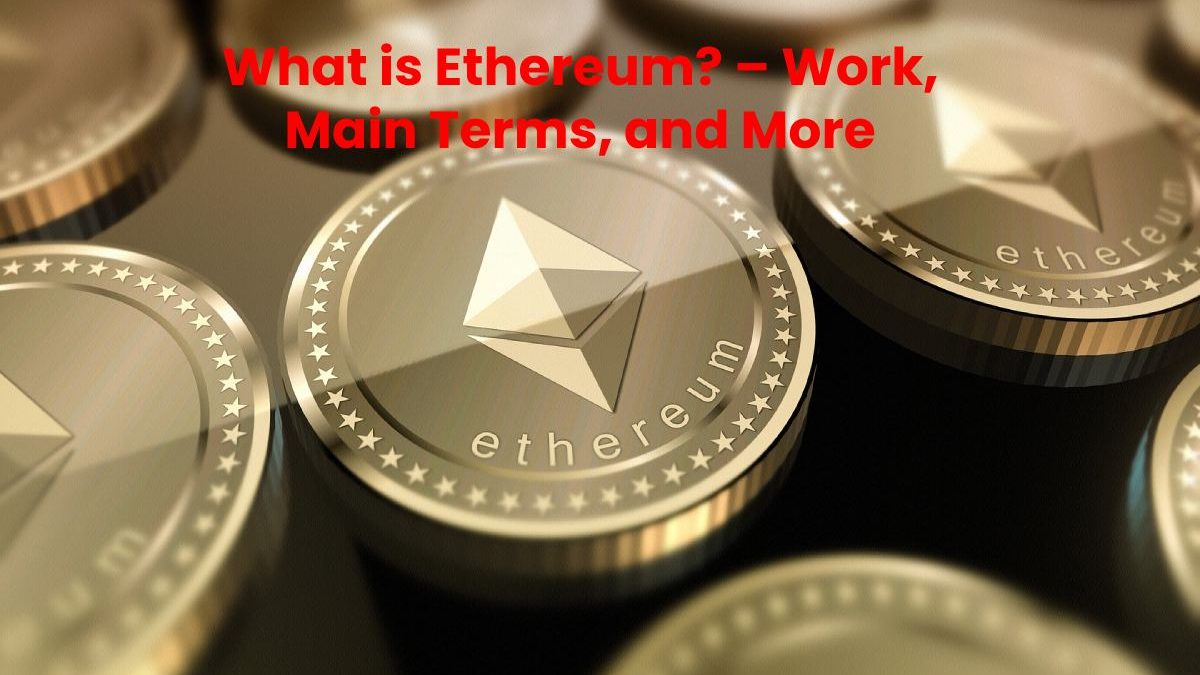Ethereum is not controlled by central authorities, such as banks and governments, as with bitcoin. These applications can be, between others, security programs, voting systems, and payment systems that belong to the cryptocurrency market. In addition,
Vitalik Buterin is the inventor of the idea embodied in Ethereum. He launched the first type of platform in 2015 with the help of several co-founders. Later then, it has rapidly gained popularity and has contributed to the rise of new rivals to bitcoin. The value of Ether (the Ethereum cryptocurrency) can be very high since it is one of the most popular cryptocurrencies; therefore, many cryptocurrency traders choose to invest in Ether instead of bitcoin.
Table of Contents
How does Ethereum Work?
Ethereum works as an open-source platform based on blockchain technology. This blockchain is hosted on many computers worldwide, so it is decentralized. However, each computer has a print of the blockchain, and there must be a widespread agreement before any changes to the network are applied.
The Ethereum blockchain is like bitcoin in that it also functions as a record of the transaction history. However, designers can also build and deploy decentralized applications or “apps” with the Ethereum network. These are also stored in the blockchain together with the record of the transactions.
What are Daps?
Daps are open-source computer programs that use blockchain technology. Unlike old applications, they do not need an intermediary to work. As this idea is still relatively new, it isn’t easy to give an exact definition. However, they are open source and decentralized stands out among their common characteristics.
Daps are created from groups of intelligent contracts. Smart contracts are scripts of code that facilitate the exchange of money, stock, content, or anything of value. Wise contracts are form with the virtual machine called Ethereum Virtual Machine (EVM in English). When a keen contract is active on the blockchain, it acts like a computer program that runs automatically. Its execution is schedule without censorship, crashes, or third-party influences.
Is Ethereum a Cryptocurrency?
Ethereum is not precisely a cryptocurrency Ethereum refers to the digital platform. The coins themselves (use for payments on the network) are called ethers. In other words, others are the “crypto gasoline” (or cryptocurrency) of the Ethereum network. When trading, the prices you will see are those of Ether. However, you will know that it is common to refer to the cryptocurrency by Ethereum.
Ethereum vs Bitcoin: What are the Differences?

As we have already mentioned, the blockchain technology of Ethereum is similar to that of bitcoin. However, there is an essential difference in their aim and capabilities. Bitcoin only uses a specific application of blockchain technology. Ultimately, an electronic cash system enables online payment with bitcoins. The Ethereum blockchain tracks ownership of the digital currency and enables the execution of programming code for several decentralized applications.
Other Key Differences Include the Following:
- Developers can raise funds for their apps with Ethereum. In addition, they can establish contacts and request guarantees from their members.
- There is a limited number of bitcoins available. Ethereum issuance is restrict to 18 million units each year, equivalent to 25% of the initial supply. Therefore, relative inflation decreases year after year as the absolute emission is fixe.
- Instead of removal bitcoin, miners on the Ethereum blockchain work for Ether.
- The cost of transactions is measure in various ways. Transaction costs depend on bandwidth usage, storage necessities, and complexity. In the situation of bitcoin, transactions compete with each other on a level playing field and are limit by the size of the blocks. This cost is called “gas.”
How to Invest in Ethereum
When you buy Ethereum (Ether) coins on the market, the price is usually display in fiat currency (USD, EUR, or GBP). That is, you sell a certain amount of money to buy Ether. If the price of Ether rises, you will be able to sell and make a profit, and if the price falls and you decide to sell, you will realize your loss. You will also need access to a market or a wallet to deposit the ethers you have purchased.
With CMC Markets, you can trade Ether through CFD trading. This way, you can invest based on price fluctuations without owning the cryptocurrency. It also does not assume any ownership of ethers; therefore, Ethereum cannot be purchase through an account with CMC Markets. What it does is open a position whose value will rise or fall depending on the price fluctuation of Ether against a fiat currency.
CFDs are leverage products. It means that to trade with them, you only have to deposit a percentage of the total value of the trade to open a position; in other words, it is trading on margin or margin. You will not have to commit all of your capital, as is the case when buying bitcoin outright, but you can use an initial deposit to gain exposure to more significant amounts. While it is true that trading with leverage allows you to increase your returns, the losses you suffer will also be increase as they are based on the total value of the position.
Ethereum Main Terms
Blockchain: A decentralized system verified by a registry can confirm the legitimate owner of a coin or event by reviewing the entire history of the life of cash or contract.
Dapps: Decentralized applications (apps) work independently based on a blockchain registry.
It was decentralize: Without a central user or centralize governing body. It creates transparency and uniformity throughout the entire network.
Ether: The currency used for transactions on the Ethereum platform.
Gas: A system calculates the energy needed to complete a transaction based on computational complexity, storage demands, and bandwidth needs.
Hard Fork: All platform users unanimously accept a significant upgrade or protocol change. The division resembles a subway map where those who disagree with the new policies split up and end their journey while most users continue.
Mining: The act of supporting the network by confirming transactions in exchange for coins.
Permissioned: The act of supporting the network by confirming transactions in exchange for coins.
Smart contracts: Contracts with strictly defined parameters are execute without the need for human interaction.
Conclusion
Ethereum is a decentralized, open-source blockchain with smart agreement functionality. Ether is the built-in cryptocurrency of the platform. Among cryptocurrencies, Ether is next only to Bitcoin in market capitalization.
Also Read: What is Mobile Commerce? – How to be Successful in Mobile Commerce

